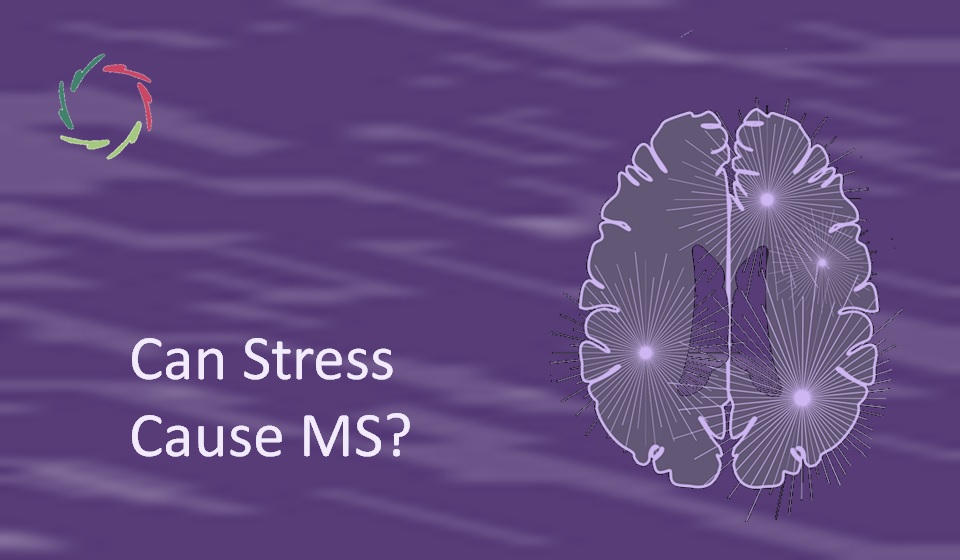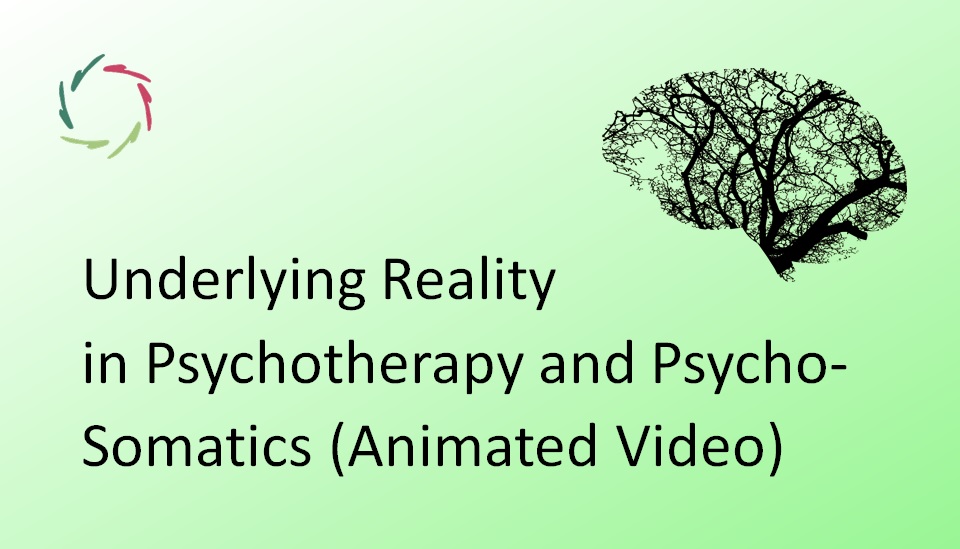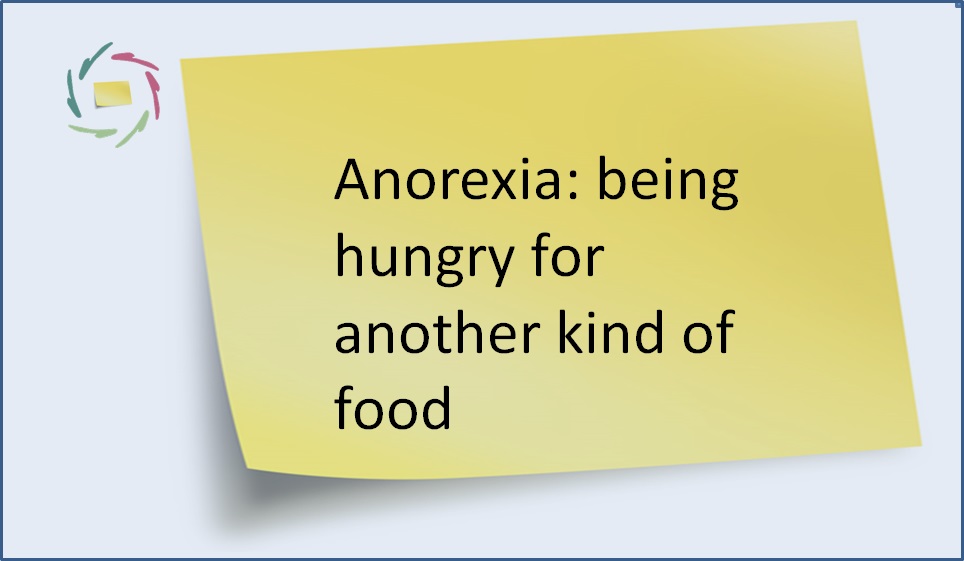Can Stress Cause MS?

MS = Multiple Sclerosis, an autoimmune disorder that specifically affects the brain and spinal cord. Its symptoms and prognosis are pretty diverse, making causal research challenging but not impossible.
According to the National MS Society, almost one million people are living with MS in the United States. Most are diagnosed between the ages of 20 and 50 years. 74% are female.
Science above all
MS patients deserve science to be as scientific as feasible. Sadly, concerning the mind-body, regular medicine doesn’t always follow this path. Nobody is to blame except those who play the blaming game themselves and at the same time who do not want to know. This bears consequences for the trustworthiness of medical science as a whole.
Fortunately, we are entering an age of deepened science.
Can’t wait!
There is little direct evidence that stress causes the onset of MS.
Even so, many MS patients suspect a functional link between their stress and MS. Some see an exceptional stress period or trauma also as what triggered the onset. Scientifically, of course, this is not enough.
So?
The lack of scientific evidence may be due to real absence or the difficulty of the science. For instance, it’s hard to assess people’s stress ― let alone their stress levels in retrospect, yet studies are almost necessarily trying to do so. One large prospective study found no increased risk of MS associated with severe stress at home and at work, yet calling for more focused measures of stress. (1) In principle, a significant causation is possible, not proven. Time will tell. To be conclusive, the right kind of experimental studies must be performed.
However, the picture is different for stress causing MS exacerbations.
There is abundant evidence from epidemiological studies for positive correlations between stressful life events and subsequent exacerbations (relapses) of MS. (2–18)
For example, several studies found stress to be associated with a doubling of the exacerbation rate during the subsequent month. (19) Stress duration, optimism, and perceived social support seem to be critical elements. (13,20) A recent study showed a significant association between adverse childhood experiences and the development of MS. (18) Also, links between the stress and immune systems have been described in MS. (21,22) On the other hand, reducing stress has a positive, yet short-lived effect on MS patients’ fMRI. (23) Even so, this information, although “appearing in respected journals, tends to be little known or discussed by clinician and patient alike.” (8)
The same is true for other autoimmune disorders (AIDs). E.g., “Stress is now recognized as an important risk factor in the pathogenesis of autoimmune rheumatoid arthritis.” (24)
Let’s keep thinking.
For instance, as said, studies find that MS patients have significantly more life stress prior to exacerbation, but:
- Is this the cause?
- Is there a mutual cause for both conditions?
Or further/deeper:
- Does the preliminary stage of an attack lead to the stress?
Or even further/deeper than this:
- Is there a mind/immune pattern of meaning that predisposes a person towards this kind of mind/body response?
The relationship between stress and AIDs in general is complex.
The question is not whether it is related to the mind or body. Mind IS body.
A better question is which venues one can take to reach the core of the issue, thereby diminishing or even eliminating the organism’s need for MS.
There is an alarming increase in AID incidence in Western countries. (15)
May psychological factors be of most importance? For instance, may people increasingly dissociate themselves from their own deeper self?
Of course, one needs to look at all evidence, especially since medication is not a success story.
The promise of Lisa science
With many users, Lisa can relatively easily gauge the stress levels of many. When a number of these get MS in the course of time, we have their prior stress histories at hand for better science than ever before.
Moreover, Lisa can open up the otherwise amorphous stress blob and pinpoint what is most relevant ― for instance, probably, the superposition of acute upon chronic stress, whereby perceptions and expectations play significant roles.
Can’t wait!
―
Bibliography
1. Riise T, Mohr DC, Munger KL, Rich-Edwards JW, Kawachi I, Ascherio A. Stress and the risk of multiple sclerosis. Neurology. 2011 May 31;76(22):1866–71.
2. Schwartz CE, Foley FW, Rao SM, Bernardin LJ, Lee H, Genderson MW. Stress and course of disease in multiple sclerosis. Behav Med Wash DC. 1999;25(3):110–6.
3. Apel A, Klauer T, Zettl UK. [Stress and progression in multiple sclerosis]. Fortschr Neurol Psychiatr. 2006 Oct;74(10):567–74.
4. AlZahrani AS, Alshamrani FJ, Al-Khamis FA, Al-Sulaiman AA, Al Ghamdi WS, Al Ghamdi OA, et al. Association of acute stress with multiple sclerosis onset and relapse in Saudi Arabia. Saudi Med J. 2019 Apr;40(4):372–8.
5. Jiang J, Abduljabbar S, Zhang C, Osier N. The relationship between stress and disease onset and relapse in multiple sclerosis: A systematic review. Mult Scler Relat Disord. 2022 Nov;67:104142.
6. Stressful life events precede exacerbations of multiple sclerosis – PubMed [Internet]. [cited 2023 Dec 31]. Available from: https://pubmed.ncbi.nlm.nih.gov/12461197/
7. Ackerman KD, Stover A, Heyman R, Anderson BP, Houck PR, Frank E, et al. 2002 Robert Ader New Investigator award. Relationship of cardiovascular reactivity, stressful life events, and multiple sclerosis disease activity. Brain Behav Immun. 2003 Jun;17(3):141–51.
8. Jelinek GA, Hassed CS. Managing multiple sclerosis in primary care: are we forgetting something? Qual Prim Care. 2009;17(1):55–61.
9. Pender MP, Wolfe NP. Prevention of autoimmune attack and disease progression in multiple sclerosis: current therapies and future prospects. Intern Med J. 2002 Nov;32(11):554–63.
10. Welsh CJ, Steelman AJ, Mi W, Young CR, Storts R, Welsh TH, et al. Neuroimmune interactions in a model of multiple sclerosis. Ann N Y Acad Sci. 2009 Feb;1153:209–19.
11. Mohr DC. Stress and multiple sclerosis. J Neurol. 2007 May;254 Suppl 2:II65-68.
12. Strenge H. [The relationship between psychological stress and the clinical course of multiple sclerosis. An update]. Psychother Psychosom Med Psychol. 2001;51(3–4):166–75.
13. Brown RF, Tennant CC, Sharrock M, Hodgkinson S, Dunn SM, Pollard JD. Relationship between stress and relapse in multiple sclerosis: Part II. Direct and indirect relationships. Mult Scler Houndmills Basingstoke Engl. 2006 Aug;12(4):465–75.
14. Mitsonis CI, Potagas C, Zervas I, Sfagos K. The effects of stressful life events on the course of multiple sclerosis: a review. Int J Neurosci. 2009;119(3):315–35.
15. van Eden W. Immunoregulation of autoimmune diseases. Hum Immunol. 2006 Jun;67(6):446–53.
16. Psychological aspects of multiple sclerosis – PubMed [Internet]. [cited 2023 Dec 31]. Available from: https://pubmed.ncbi.nlm.nih.gov/18022759/
17. A temporal framework for understanding the effects of stressful life events on inflammation in patients with multiple sclerosis – PubMed [Internet]. [cited 2023 Dec 31]. Available from: https://pubmed.ncbi.nlm.nih.gov/15894458/
18. Mohr DC, Hart SL, Julian L, Cox D, Pelletier D. Association between stressful life events and exacerbation in multiple sclerosis: a meta-analysis. BMJ. 2004 Mar 27;328(7442):731.
19. Buljevac D, Hop WCJ, Reedeker W, Janssens ACJW, van der Meché FGA, van Doorn PA, et al. Self reported stressful life events and exacerbations in multiple sclerosis: prospective study. BMJ. 2003 Sep 20;327(7416):646.
20. Briones-Buixassa L, Milà R, Ma Aragonès J, Bufill E, Olaya B, Arrufat FX. Stress and multiple sclerosis: A systematic review considering potential moderating and mediating factors and methods of assessing stress. Health Psychol Open. 2015 Jul;2(2):2055102915612271.
21. Kern S, Ziemssen T. Brain-immune communication psychoneuroimmunology of multiple sclerosis. Mult Scler Houndmills Basingstoke Engl. 2008 Jan;14(1):6–21.
22. Gold SM, Mohr DC, Huitinga I, Flachenecker P, Sternberg EM, Heesen C. The role of stress-response systems for the pathogenesis and progression of MS. Trends Immunol. 2005 Dec;26(12):644–52.
23. Lovera J, Reza T. Stress in multiple sclerosis: review of new developments and future directions. Curr Neurol Neurosci Rep. 2013 Nov;13(11):398.
24. Stress as a risk factor in the pathogenesis of rheumatoid arthritis – PubMed [Internet]. [cited 2023 Dec 31]. Available from: https://pubmed.ncbi.nlm.nih.gov/17709949/


